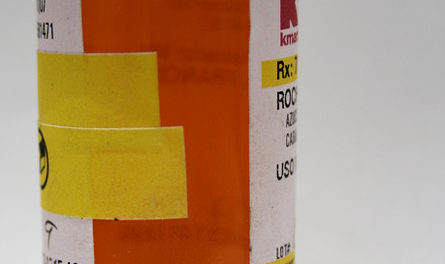Drugmakers lose bid for every state disciplinary and prescription record to help opioid defense
A California appellate court reversed a lower court’s ruling that had ordered production of a vast amount of licensed prescribers’ confidential investigatory and disciplinary case files and prescription records as part of their defense against a state lawsuit seeking to hold them accountable for the opioid crisis. The January 15 ruling agree with the state that too much information in those files was privileged and available in less intrusive forms.
The state had filed a complaint against the defendant pharmaceutical companies, alleging a deceptive marketing scheme in the prescription of their opioid products which led to the country’s opioid crisis. In response, the defendant companies served broad subpoenas on the state pharmacy, nursing, and medical boards, seeking documents related to opioid use for the last 30 years.
They then moved to compel the production of any documents from all disciplinary proceedings involving opioids, all investigatory files involving opioids, any coroner’s reports involving opioids, and all prescription records for opioids contained in the state’s Controlled Substance Utilization Review and Evaluation System database. A trial court ordered the agencies to produce the records, with some identifying information redacted.
The agencies appealed the decision, arguing that the trial court’s order was untimely, that it was improper because the pharmaceutical company defendants did not provide notice to those consumers whose personal information was exposed by the subpoenas, and that the documents sought were protected by constitutional rights to privacy and various laws and legal privileges. The case went up to the Court of Appeals of California, 4th District.
Noting that the pharmaceutical defendants did not file their motion to compel until more than six months after the initial objections of the agencies to the subpoena, the Court of Appeals agreed that the motion to compel the agencies to comply with the defendants’ subpoenas was untimely.
At the time the defendants served the subpoenas, the medical and pharmacy boards had objected before the date specified for production.
Under state law, the defendants then had 60 days from those objections to file a motion to compel, a deadline they had failed to meet. Although the pharmaceutical companies argued that, because the agencies had eventually produced some documents on a later date, the 60-day deadline should not have started tolling on the date of the objections, the judges disagreed.
They wrote that a “nonparty’s compliance with the subpoena is clear on the date specified for production” and the subpoenaing party has all the information it needs to file a motion to compel as of that date, and later document production is irrelevant for the tolling.
Under California’s code of civil procedure, a subpoena that seeks personal records of consumers must be accompanied by proof that the consumers were notified. Although the trial court had allowed the personal identifying information of patients, complainants, and witnesses in the case records sought to be redacted, it did not permit redaction of the information of the investigated health care professionals in those files.
The pharmaceutical defendants argued that the disclosure of those individuals’ information was not required to be accompanied by notice due to exemptions created by the state’s Information Practices Act. The court disagreed, holding that the Act and the notification requirements were compatible and one did not supersede the other.
The court also held that the trial judge’s order to compel production of the various files was overbroad and in violation of multiple privileges and the constitutional rights to privacy of the individuals whose information was in the files.
The investigatory files and administrative records contain vast amount of material, and defendants have not shown that these broad categories are reasonably calculated to lead to the discovery of admissible evidence,” Justice Patricia Guerrero wrote. “Moreover, even if these categories do contain some records that would be discoverable, their probative value is vastly outweighed by the privileged and private nature of the other records swept up in the production.”
A large number of documents contained in the investigative files and disciplinary proceedings sought by the pharmaceutical defendants contained confidential material like patient files that would not be discoverable in any case, a fact that added to the unreasonableness of the subpoenas.
The interest in confidentiality outweighed the pharmaceutical defendants’ interest in acquiring the files. “The health care professionals named in the investigatory files and disciplinary proceedings have a legally protected privacy interest in their personal information reflected in the records, which may include not only their professional and financial details but also their own medical records,” the justice continued.
“This right to privacy is especially salient for those professionals who were investigated but never accused of wrongdoing.” Additionally, she wrote, indiscriminate production of investigatory files would discourage cooperation with future investigations.
Regarding the controlled substance utilization or CURES data sought by the defendants, Justice Guerrero noted that, although the data is made confidential by statute, its implementing regulations expressly allow for disclosure in response to a subpoena and court order. Thus, that data was not categorically privileged.
However, the lack of categorical privilege does not mean that the defendants were justified in seeking all of the records that they did, she wrote. Although the defendants had sought to obtain files with patients’ names replaced by a unique identifier in order to correlate different datasets, Justice Guerrero noted that this would not be enough to free them from an obligation to provide notice to each patient whose information would be accessed.
“Parties to litigation cannot avoid the consumer notice provisions by using unique identifiers that can be decoded by the receiving party, as if the data were never de-identified in the first place.” And most of the information that would be relevant to their case was already available from less obtrusive sources.
The justices reversed the lower court’s decision to order production of the records.


